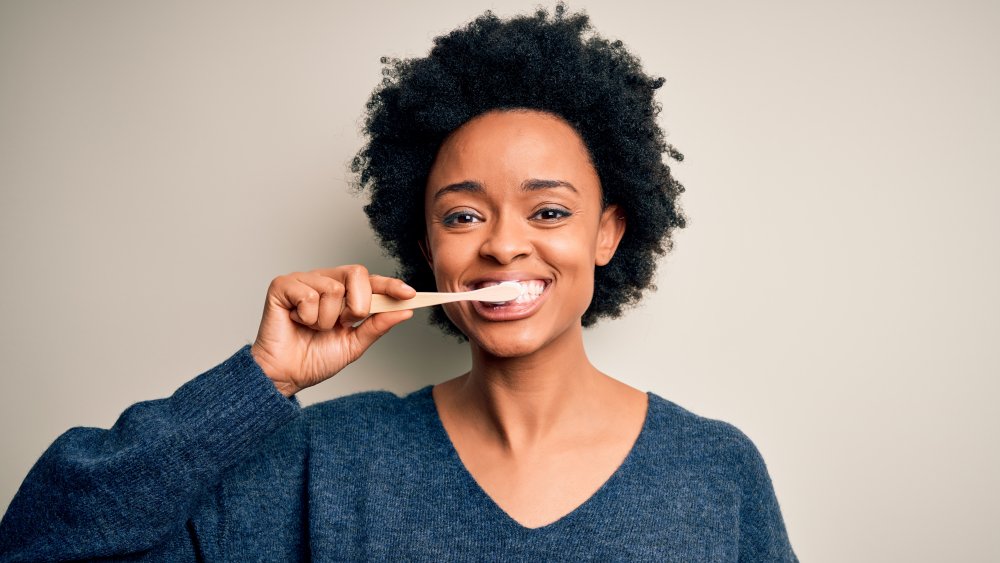The Real Reason Your Teeth Are Turning Yellow
You've probably heard that coffee and tea can stain your teeth — well, sorry, but it's true. And it's not just our favorite morning drink that's to blame for the gradual loss of that pearly-white smile. There are a host of other factors that could be contributing.
Tooth enamel is porous, and plaque build-up (which is a collection of bacteria and food debris) can settle into the pores, causing tooth discoloration. While coffee and tea are major culprits, there are other highly-pigmented drinks and foods which are also to blame, like wine, dark sodas, soy sauce, and even blueberries. And sorry smokers — nicotine is also a major culprit. Dr. Justin Philipp of J. Philipp Dentistry in Chandler, Arizona, explains (via LiveScience), "The No. 1 cause of teeth yellowing is lifestyle. Smoking, drinking coffees and teas, and chewing tobacco are the worst offenders."
If the thought of giving up your morning coffee is just too much, there are other steps you can take to help keep your smile bright. Dr. Mohammad Sajid, a dentist at Coast Dental in Acworth, Georgia, told Coast Dental & Orthodontics, "The best thing to do is to cut down the amount of coffee or soda you drink. The next best thing is to drink it through a straw. It sounds odd, but instead of hitting the front of your teeth, the liquid will hit the palate and not have as much contact with the surface of the teeth."
Brushing regularly can help prevent yellowing
Besides food, drinks, and nicotine, there are other reasons your teeth might be losing their luster. Genetics play a role. Some people naturally have thick or thin tooth enamel. Because of age, or excessive brushing, the tooth enamel gradually wears down, making the next layer of tooth — the yellow or brownish dentin — become visible.
Overall health is also a factor. Illness, injury, nutritional deficiencies, and even some medications can also cause tooth discoloration.
Thankfully, there are steps you can take to keep your smile bright. Brushing your teeth twice a day, as recommended by the American Dental Association, is important, as is flossing daily. Limiting consumption of tooth-staining drinks and foods can help. Regular dental cleanings are important too. Dr. Edita Outericka, the dental director at Dynamic Dental in Mansfield, Massachusetts, suggests, "It's best to have your teeth cleaned regularly by a professional. This will help remove staining."
Still not happy with your smile? Your dentist may be able to help. Outericka adds, "There are numerous treatments that can be performed which could lead to a bright white smile!"


